Net Carbs in Cashews - What You Need to Know
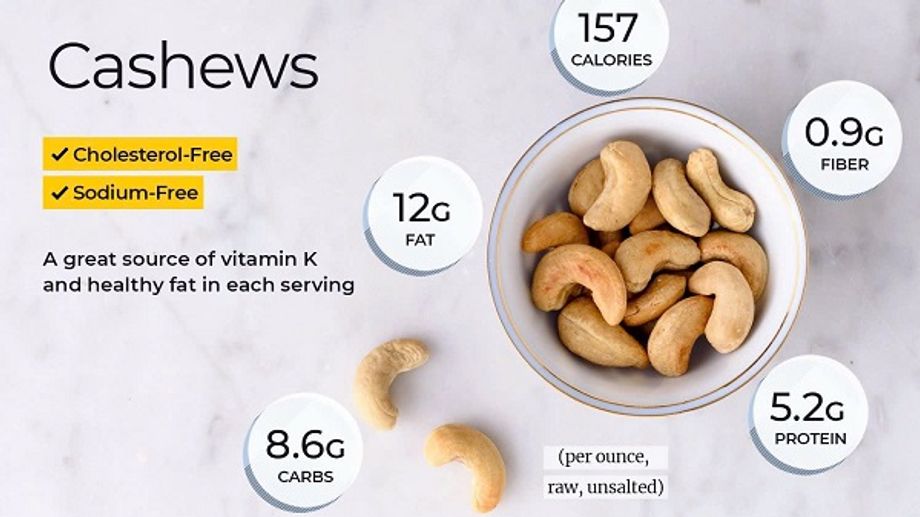
1. Do cashews contain net carbs? How much net carbs are in cashews?

Cashews contain net carbs. Net carbs are the amount of carbohydrates that your body can digest and absorb, calculated by subtracting the fiber content from the total carbohydrates.
Net Carbs in Cashews:
- Average: In each serving of 1 ounce (28 grams) of cashews, there are approximately 8 grams of net carbs.
Note that in a diet or low-carb diet, cashews can be consumed but should be considered in moderation to avoid exceeding the desired net carb intake for the day. Cashews are also highly nutritious, providing protein, healthy fats, vitamins, and minerals, contributing essential nutrients to the body.
2. What are net carbs? Types of net carbs in cashews

Net carbs are the amount of carbohydrates that your body can actually digest and absorb, which is what affects your blood sugar levels. They are calculated by taking the total carbohydrates in a food and subtracting the fiber content, because fiber is not digested by the body.
Types of Net Carbs in Cashews
Cashews contain several types of carbohydrates, but here’s the breakdown focusing on net carbs:
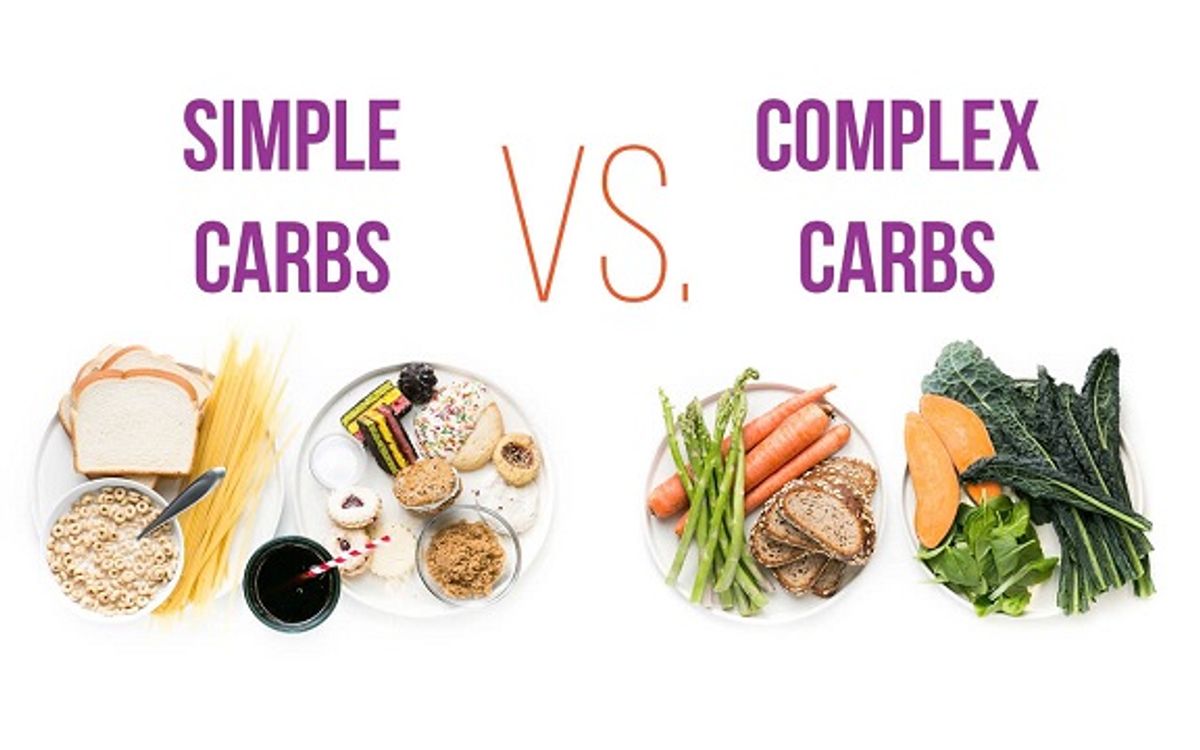
- Simple Carbohydrates: These are sugars that provide quick energy but can spike blood sugar levels. Cashews contain small amounts of simple sugars.
- Complex Carbohydrates: These are starches that are broken down into sugars more slowly, providing sustained energy. Cashews have moderate amounts of these.
- Fiber: While fiber is a carbohydrate, it is not digested by the body and thus does not count towards net carbs.
For a 1-ounce (28-gram) serving of cashews, there are approximately 8 grams of net carbs, calculated by subtracting the fiber from the total carbs.
3. Effects of net carbs on the body
Net carbs have a significant impact on your body as they are the carbohydrates that your body can digest and absorb. Here’s how they affect you:
- Blood Sugar Levels: Net carbs are the primary factor in raising your blood sugar levels. Consuming foods with high net carbs can lead to spikes in blood sugar, followed by crashes, which can affect energy levels and mood.
- Energy Levels: Carbohydrates are the body's main source of energy. Consuming net carbs provides immediate energy. However, too many can lead to weight gain if not balanced with physical activity.
- Weight Management: Monitoring net carb intake is crucial for weight management, especially in low-carb or ketogenic diets. Managing net carbs helps in burning fat for energy instead of glucose.

- Digestive Health: While fiber (which is not counted as net carbs) aids in digestion and helps prevent constipation, net carbs don’t have this benefit and should be balanced with fiber intake for optimal digestive health.
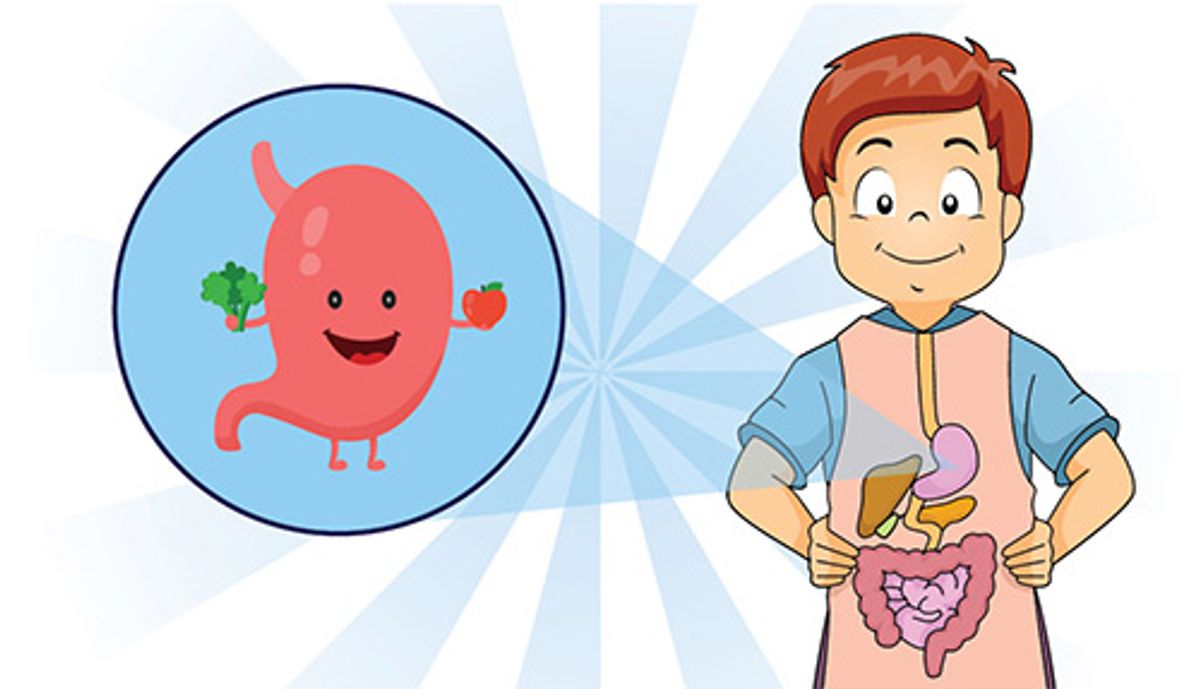
- Appetite and Cravings: High net carb intake can lead to increased hunger and cravings, making it harder to maintain a balanced diet.
- Long-Term Health: Maintaining a balanced intake of net carbs can help prevent long-term health issues like diabetes, obesity, and heart disease.
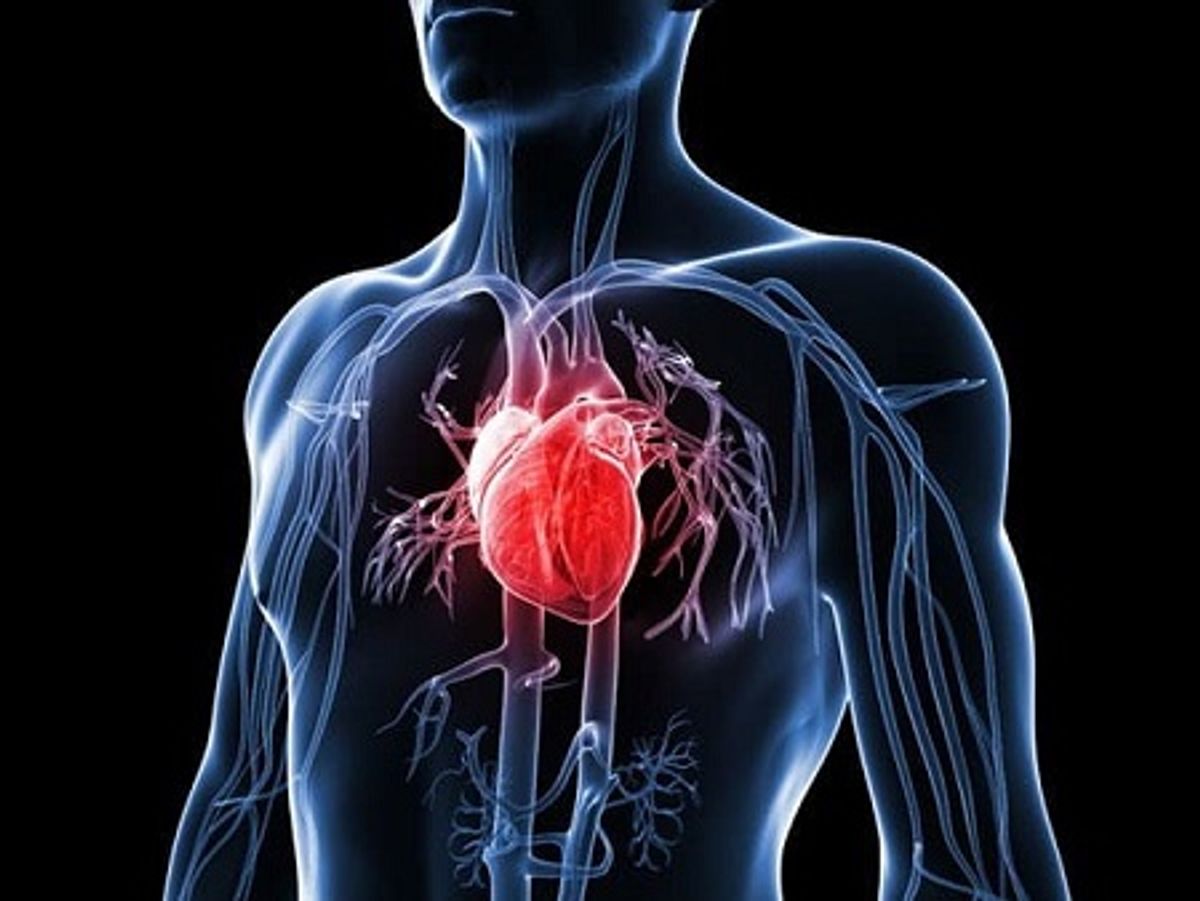
Balancing your net carbs with protein, healthy fats, and fiber is key to maintaining overall health.
4. How should cashews be used with your diet to supplement the appropriate amount of net carbs?
Incorporating cashews into your diet to manage net carbs can be delicious and nutritious! Here’s how you can do it:
Portions and Serving Sizes
- Moderation is key: Since 1 ounce (28 grams) of cashews contains about 8 grams of net carbs, it's essential to monitor your portion sizes to stay within your daily carb limit.
- Snack Wisely: Enjoy a small handful (about 10-15 nuts) as a mid-day snack to curb hunger without overloading on carbs.
Meal Incorporation
- Salads and Stir-Fries: Add a tablespoon of chopped cashews to salads or stir-fries for added crunch and nutrition.
- Smoothies: Blend a few cashews into smoothies for a creamy texture and a boost of healthy fats and protein.

- Breakfast Boost: Sprinkle cashews on oatmeal or yogurt to start your day with a balanced meal.
Balanced Diet
- Combine with Fiber: Pair cashews with high-fiber foods like vegetables and whole grains to help balance blood sugar levels and enhance digestion.

- Include Protein: Combine cashews with protein-rich foods like chicken, tofu, or beans to create a balanced meal that keeps you full longer.
- Healthy Fats: Cashews provide healthy fats that are great for heart health. Balance them with other sources of healthy fats like avocados and olive oil.
Low-Carb Recipes
- Cashew Chicken: Stir-fry chicken with cashews, bell peppers, and a low-carb sauce for a tasty, balanced meal.
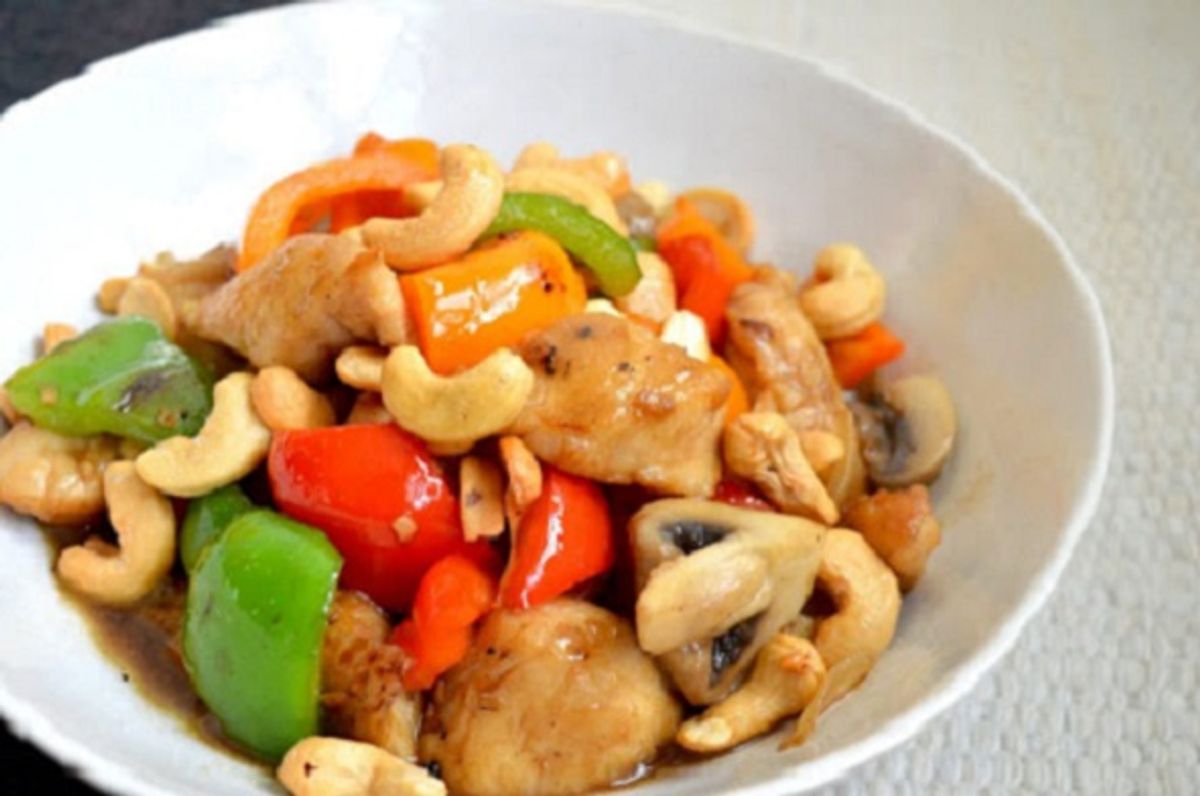
- Cashew Butter: Use cashew butter as a spread or dip for veggies, keeping an eye on portion size.
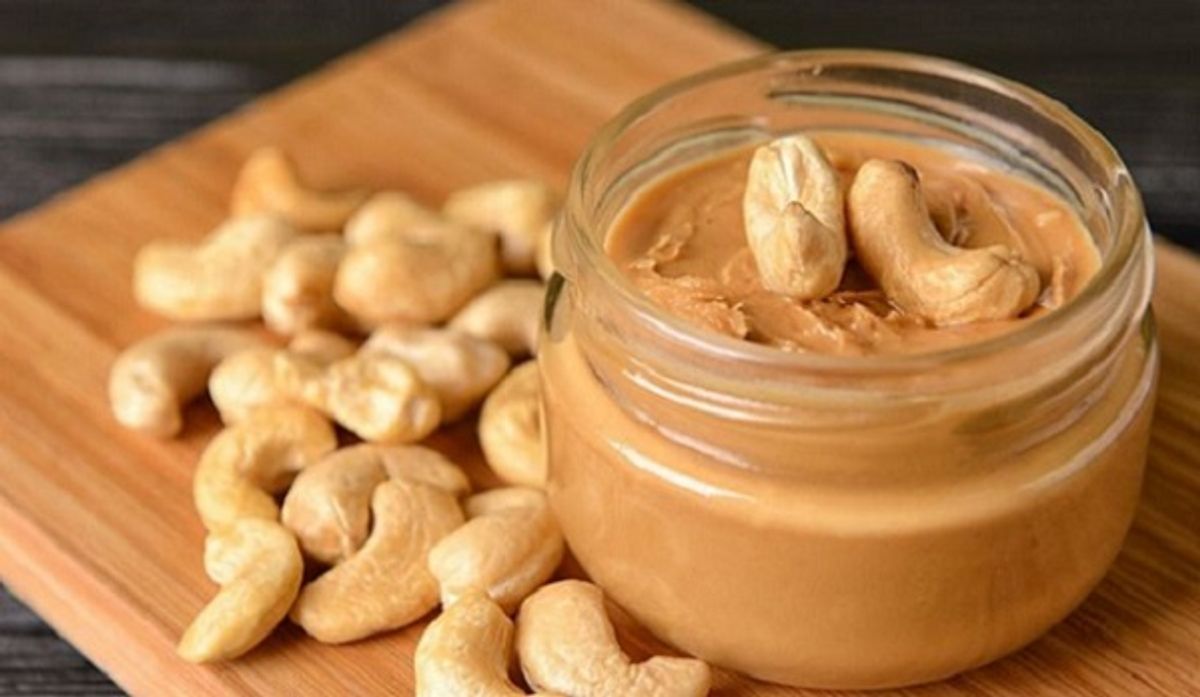
Consideration in Low-Carb Diets
- Check Labels: If you're buying pre-packaged cashew snacks or products, check the labels for added sugars or carbs.
- Monitor Intake: Keep track of your daily carb intake to ensure you're staying within your goals while enjoying the benefits of cashews.
Enjoying cashews in moderation and as part of a balanced diet can help you manage your net carb intake while providing essential nutrients.
Xem thêm: Hạt điều có chứa net carbs không? Lượng net carbs trong hạt điều là bao nhiêu
Learn more: Do Cashews Contain Net Carbs? How Many Net Carbs Are in Cashews?